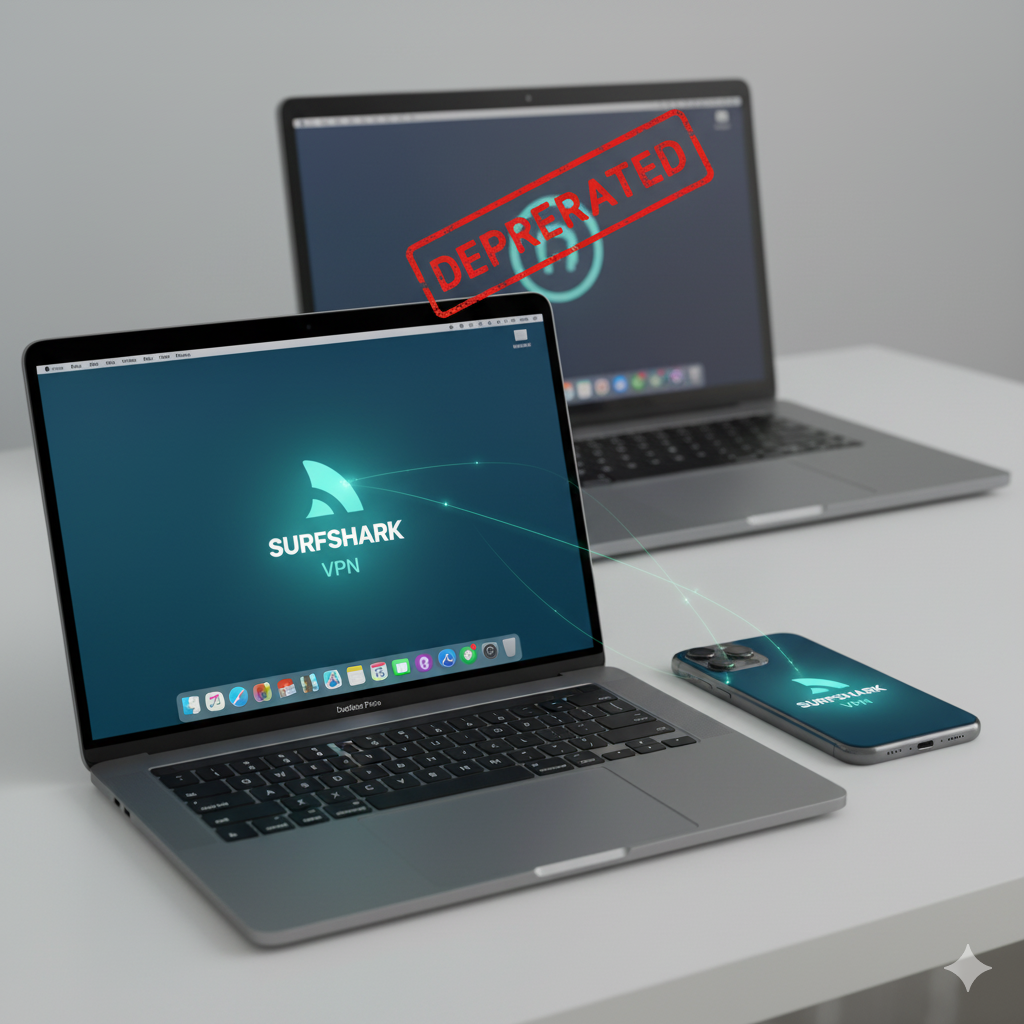As security threats evolve and operating systems age, VPN providers must keep pace — or fall behind. In a significant move, Surfshark has announced it will no longer support legacy versions of iOS and macOS, signalling its commitment to modern encryption standards, real-time updates, and robust protection for its users. By focusing on the four latest releases of Apple’s operating systems, Surfshark aims to deliver enhanced security and performance for its VPN service. This decision underscores that VPN app support is just as critical as the VPN protocol itself.
What Surfshark is doing & why
In its official blog post dated October 1, 2024, Surfshark stated it will support only the four most recent iOS and macOS versions. Users running older systems may continue to use the app for now, but will no longer receive feature updates, security patches, or performance enhancements.
The VPN provider explained the reasoning: “In order to deliver the best security, it’s essential to concentrate on operating systems that still receive active patches from Apple — older systems pose a higher risk vector.”
By dropping support, Surfshark can streamline development, reduce complexity in testing across multiple OS versions, and ensure encryption modules remain tightly integrated with current OS capabilities.
Security and performance implications
Improved security: Older OS versions often lack the latest security patches, making them vulnerable to newly discovered exploits. A VPN client tied to such systems inherits that risk. Supporting fewer, newer OS versions means Surfshark can build in advanced features — such as newer cipher suites, better memory management, and OS-integrated network protections — without worrying about backwards compatibility.
Performance benefits: Modern hardware + modern OS = better resource handling, quicker context switching, and smoother network throughput. Surfshark’s move enables it to optimise the VPN app for these environments, improving speed, latency, and reliability.
Feature rollout speed: When supporting a wide range of OS versions, developers often need to regress features or avoid them altogether. By narrowing the support window, Surfshark can bring innovations more quickly to the bulk of its user base.
User safety trade-off: While the company emphasises benefits, users still on older macOS or iOS versions must recognise they will increasingly face security risks — not just from OS end-of-life status, but from VPN features that may no longer operate or receive fixes.
Comparisons in the VPN industry
Many leading VPN services adopt similar strategies. For example:
NordVPN dropped support for older Windows 7/8 systems several years ago, citing end-of-life OS security risks.
ExpressVPN regularly notes that its apps function best on recent OS versions and urges users to update.
Surfshark’s difference is in announcing a clear “four latest OS versions” policy — giving users transparency on when their older systems will ingress into unsupported territory.
This trend reflects a broader industry understanding: supporting very old OS versions increases operational risk, slows innovation, and can compromise privacy guarantees.
What this means for users
Check your OS version: If your Mac is running anything older than the four most recent macOS releases (as of October 2024) or your iPhone is on a too-old iOS version, you’ll face diminishing support. Surfshark still allows manual setups, but expect fewer updates.
Update when possible: For users who care about VPN integrity, the ideal path is to update devices or migrate to supported systems.
Legacy users beware: If you stay on an unsupported version, you may still connect, but you’ll lack bug-fixes, feature updates, and could face compatibility issues — particularly as Surfshark evolves encryption and networking stacks.
Broader context: Whether you’re a privacy-focused individual or using a VPN for remote work, the underlying system matters just as much as the app. A strong VPN can be undone by an outdated OS.
Learn more than VPN usage in UAE hits 6 million downloads in H1 2025
Conclusion
Surfshark’s decision to drop legacy iOS and macOS support highlights a strategic pivot: prioritising modern security over backward compatibility. While this may inconvenience users with older Apple devices, the move ultimately aligns with the core purpose of a VPN — offering reliable, up-to-date protection of your online traffic. For VPN users, it serves as a reminder — your software, your OS, your app all deserve attention. Stay current, stay supported, stay safe.



